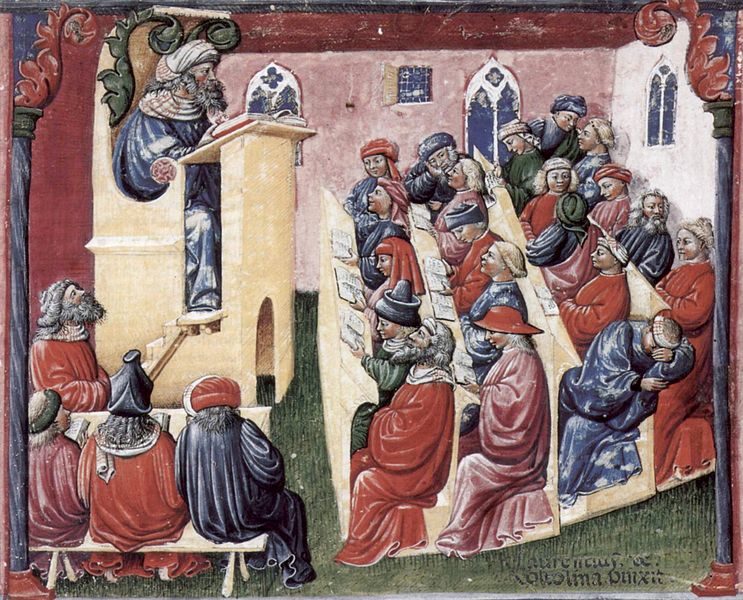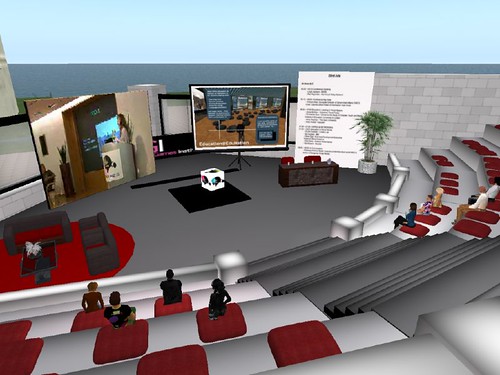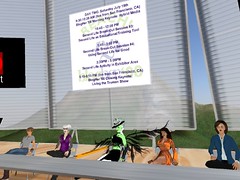The Second Life Community Convention 2008 and Second Life Education Community Conference 2008 wrapped up in Tampa, FL and in Second Life on Sunday afternoon, two days ago, but it is only now that I am relaxed and awake enough to write about it. I think the things that affect us most profoundly are the hardest to put into words, but I’m gonna take a stab at it.
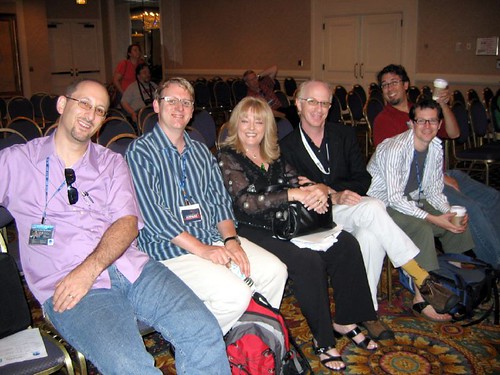
Last educators standing for the final panel on SL media at SLCC07 in Chicago.
My first SLCC was last year, in Chicago, and I remember driving up with such a feeling of.. trepidation and worry. I remember wondering if all those people I’d met and worked with during the organizing of the Second Life Best Practices in Education 2007 conference would like me in Real Life, worried what the dress code would be, worried I’d not feel as comfortable with people in person as I was in our virtual spaces. I ended up having a really good time, met so many great people, and spent the next year strengthening those friendships through all of our online interactions and at other educational conferences throughout the year.

Intellagirl, Fleep, Typewriter, and Decka at Emory’s Virtual Worlds conference, Feb 2008. Image courtesy Decka Mah.
This year leading up to SLCC, I didn’t have time to be nervous. Organizing the SLEDcc component of the conference was a staggering amount of work! (At some point, I really should write about the differences in organizing a real world conference that served some 4-600 people and organizing a virtual world conference that served 1300 people. With NO QUESTION, the virtual conference served more for far less work, money, time, and effort. Holy smokes. But that’s another post for another time…)

Wainbrave, Frans, Rhiannon, Fleep, Armath, and Jeremy Braver outside the hotel in Tampa.
No, this year I didn’t have time to worry or be self-conscious, there wasn’t any time for it, and when I flew in on Wednesday, got unpacked, my only thoughts were of details and things to do and being anxious to see all of my friends. Looking back on it from the other side now, all I can say is that it felt like the most excellent of family reunions – there truly is nothing better in life than spending good time with great friends.
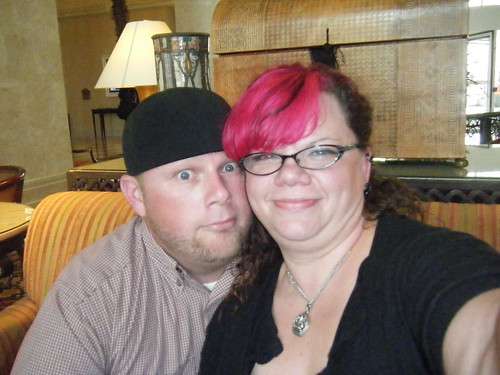
Jeremy Koester and Sarah Robbins hanging out in the hotel lobby at SLCC08.
I think in any large scale event like this, you come into contact with so many people so rapidly, things begin to blur together, for me in just a general warm happy feeling. But I want to be sure to acknowledge, personally, the people who really made this a terrific experience for me, and I think for the whole of the SL community.

Carol Tucker and Scott Merrick, leaders of “The Stream Supreme Team” made the cross-world connection with those in Second Life possible. Image courtesy Scott Merrick
My personal heroes, the ones who I worked with and was helped by, and who gave so selflessly of their time, their equipment, their expertise, and their passion for Second Life that I simply must call them by name are Jonathon Richter, Jennifer Ragan-Fore, Scott Merrick, Carol Tucker, Suzie Medders, Jeremy Kemp, Daniel Livingstone, AJ Kelton, Anthony Fontana, Bonnie Mitchell, Sarah Robbins, Mark Bell, and Jeremy Koester.
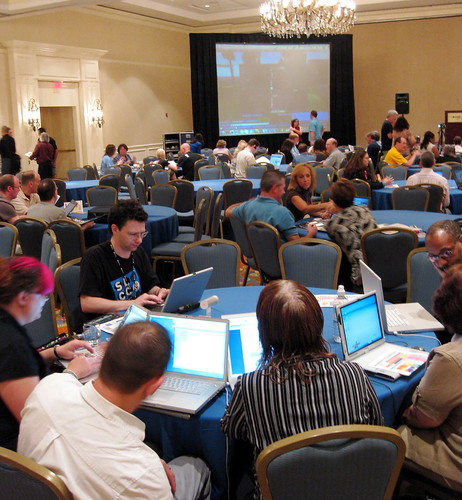
AJ Kelton and others live blogging, twittering, and supporting SLEDcc sessions. Image courtesy http://flickr.com/photos/nkellett/
In one way or another, their contribution to the SLEDcc in Tampa was crucial to its success – they were the ones who answered the call when something absolutely needed to be done and could only happen if someone with a big heart jumped in to do it. I hope you guys know the depth of my affection and appreciation. Thank you so very much. <3 <3 <3

Fleep and Joyce trying to get the programs and sponsor stuff situated.
If I thought it would really convey the awe I feel for all of the presenters and volunteers, I’d list every one of them by name too -it seems like I never really got to sit down and hear all the presentations or thank each person who was working behind the scenes because I was on the go running from place to place myself, but every time I looked into a room, I saw passionate people giving great talks about things they worked on, believed in, and wanted to share with others, helped by great volunteers who were on stand by to solve problems, gopher supplies, stuff bags, and more.
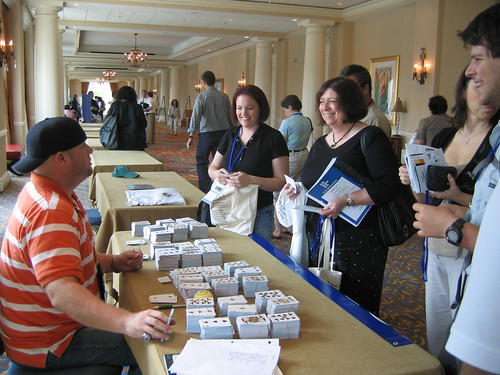
Jeremy Koester manning the SLEDcc Game Control table. 7 of diamonds ftw!
I saw the products of their work in smooth sessions, great handouts and resources, terrific machinima and reports, and the collective and growing wisdom of the educational community in Second Life – I saw the pioneers of this field in person, I got to meet them and hug them and share meals with them, and I feel so tremendously lucky to be in such good company. As colleagues, as friends, the people who share their Second Life work with others are what make SLED special, no matter our other affiliations. Thank you one and all for your terrific work.

Peter freaking out on day 1 of the SLCC! Image courtesy Nexeus Fatale.
It was in Tampa, too, that I finally got to meet the voices on the phone from The Future United. Peter, Leo, Misty, and Joyce, through all those many months of stressing over the details and logistics, were a joy to work with. It’s easy for those of us in the education community to stay engrossed in our work, but SLCC really makes you look up and see all of the diversity in Second Life, and that’s what these guys did for me.

Nexeus working even during the party! Image courtesy Nexeus Fatale.
When they talk about “the community”, they are inclusive of everyone, and they taught me to see more than just the needs of educators in planning a celebration of all of Second Life’s residents. After working with them in person in Tampa, I came away thinking that we have a lot of work to do for 2009, and I can’t wait to get started.
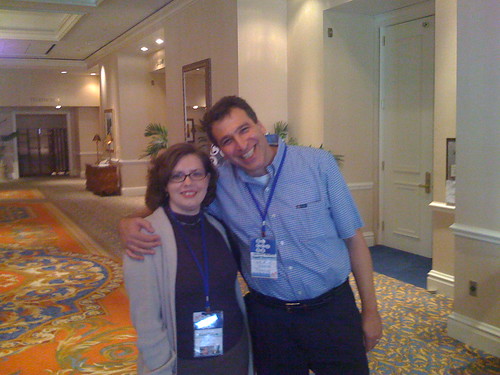
Fleep with Robert Bloomfield of Metanomics fame.
I didn’t mean for this to turn into a big thank you note, but it seems to be coming out that way. I guess it’s because SLCC this year was such a gift for me. As some may know, my grandfather has been very ill and these past few months have been grueling and hard trying to keep up with work and still spend as much time as I can with him. I’d reached such a state of utter exhaustion leading up to SLCC, I almost didn’t come at all. I worried about spending the time away from my family at such a difficult time, I worried I wouldn’t be able to handle all the pressure of pulling things off.. I didn’t even realize what a huge and wonderful support network of friends I had behind me.
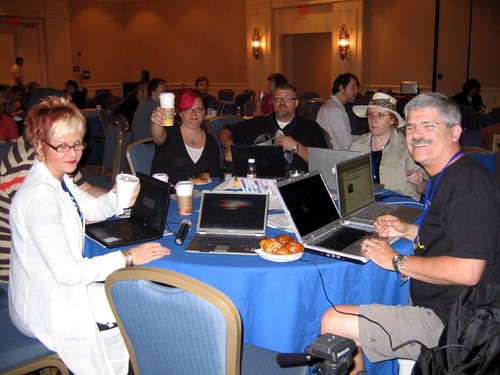
Peggy Sheehy, Sarah Robbins, Mark Bell, Carol Tucker, and Scott Merrick at the streaming table.
Sitting here even now, it really makes me teary to think of all the people who gave me a hug and told me they were thinking of and praying for me and my family. I had no idea how much joy and respite it would give me to spend a few days with such warm, caring people, my good friends. Instead of coming back feeling drained and exhausted, I’ve come back feeling rejuvenated and reminded what it is that we’re all working for – a better life, real and virtual, for ourselves, our friends, our families, our communities, and our world. I’ve come back feeling rested and recharged, inspired anew in my passion for Second Life and the people that create it.
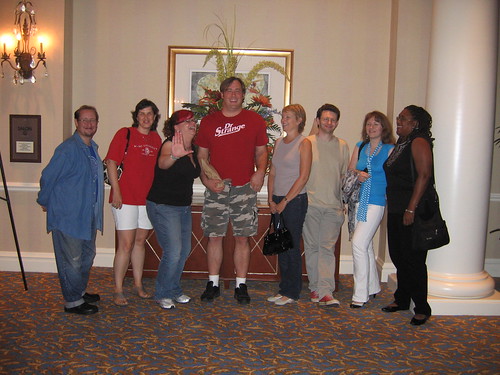
SLEDcc folks doing a late tour of the facilities in preparation for the start of SLEDcc!
And I guess in the end that’s what makes SLCC so special. When people gripe about the ticket cost (which is really unfair because the planners do everything they can to make it as absolutely affordable as possible and still put on a good, high quality show) or wonder why anyone would bother coming to the Second Life Community Convention, I wish I could explain what makes it special. They ask, isn’t it just a big geek meet with weird laptop toting people?
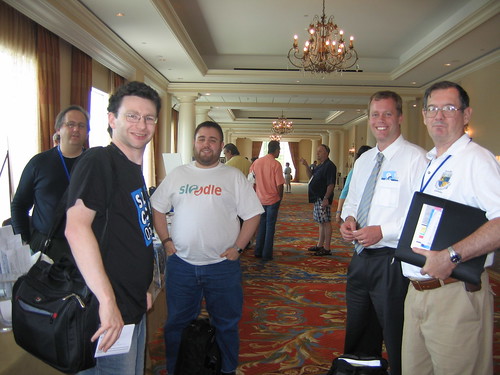
Sloodle and Rockcliffe U at SLCC08.
The answer is yes and no, we’re all weird in our own ways, and you’re sure to spot a laptop or a geek around every corner, but of all of the conferences, conventions, and meet ups I attend throughout the year, SLCC is special. For whatever reason, Second Life inspires a kind of creativity and diversity and range of passions in people that when we come together in person, it feels as much like a festival and a celebration of life itself as it does a convention or a conference about a technology.
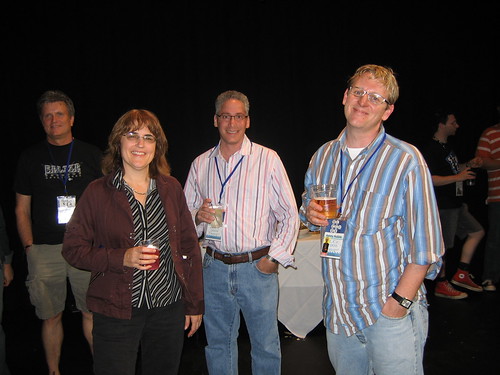
Bonnie Mitchell, Steven Hornik, and Ken Hudson at Tampa Bay Performing Arts Center social mixer.
As I look at all the pictures on Flickr, and see all of those happy, smiling faces, I feel blessed, lucky, and privileged to have been a part of it. My only regret is the time I didn’t get to spend with sooo many people who I really wanted to be with and just couldn’t, but was glad that I at least had a few snatched moments to meet and hug in person – Cybergrrl, Crap, Draxtor, Bjorlyn, Harper, Bevin, geez I could go on for days. And for all the people who weren’t there this year, whose presence was sorely missed (Randy, Prokofy, Dizzy, Douglas, KJ, Joanna, Chilbo, I’m talking to you!), I can only hope to see you at SLCC next year. It was a spectacularly great time.

Jonathon and I finally taking a break!
To Jonathon and all my personal friends at SLCC, Velks and all, I don’t think I need to say anything else other than thank you. I love you guys and I can’t wait until we see each other again. xoxo.

![Reblog this post [with Zemanta]](http://img.zemanta.com/reblog_c.png?x-id=7cffd73b-bd95-4175-8da9-40d874050998)
![Reblog this post [with Zemanta]](http://img.zemanta.com/reblog_c.png?x-id=013c1654-9bb0-4bdd-9e1d-b0203e9a731d)
















![Reblog this post [with Zemanta]](http://img.zemanta.com/reblog_c.png?x-id=06a6f36b-4d69-4b08-ae2a-91cb68de5cad)

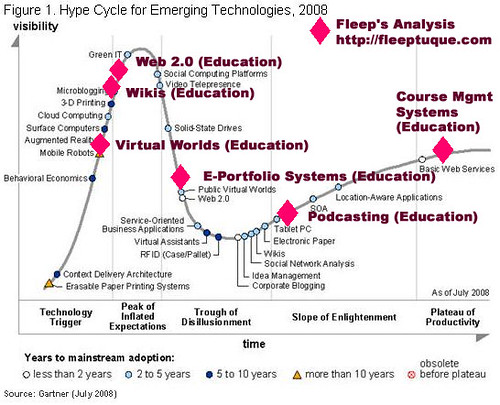

![Reblog this post [with Zemanta]](http://img.zemanta.com/reblog_c.png?x-id=747e33a2-bd05-4448-b789-a033ad76f097)

